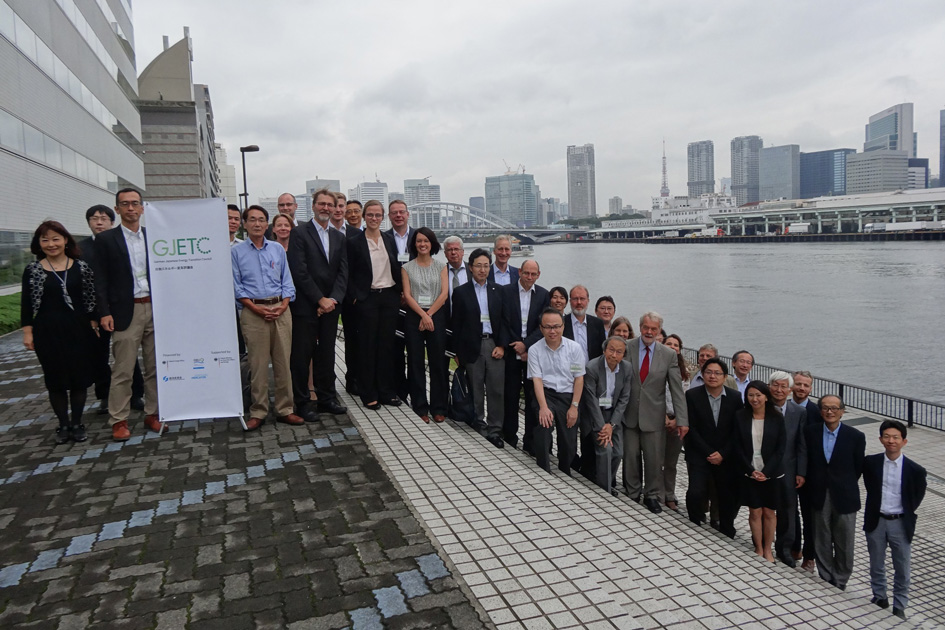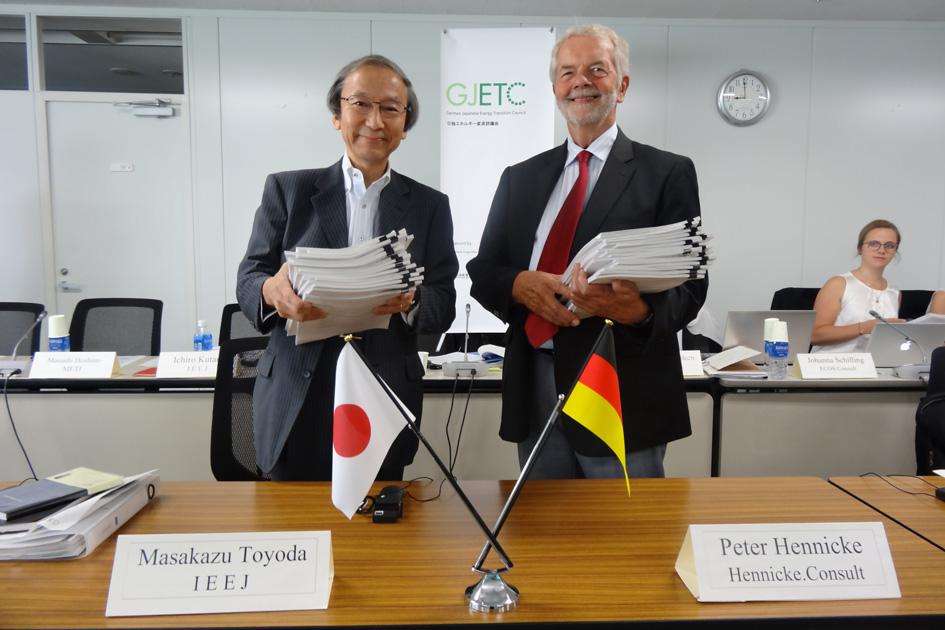Promoting German and Japanese Energy Transition
First GJETC study results presented in Tokyo

First GJETC study results presented in Tokyo

Both highly industrialised countries, Germany and Japan face similar challenges in the development of their energy industries to achieve a resource- and climate-friendly energy supply. In order to meet these challenges, the German-Japanese Energy Transition Council (GJETC) was formed with strong support by the Deutsche Bundesstiftung Umwelt (German Federal Environmental Foundation, DBU), the Stiftung Mercator Foundation, the German Federal Foreign Office and the Japanese Ministry of Economy, Trade and Industry (METI). The expert panel focuses on scientific stock and transformation analyses for both countries on systems, technologies and policies of the energy transition. As such, it provides an important stimulus for politics and the economy. On the German side, the Wuppertal Institute supports the Council's work as the scientific secretariat. In Japan this role is played by the renowned Institute of Energy Economics Japan (IEEJ). Prof. Dr. Peter Hennicke, former President of the Wuppertal Institute and idea-giver to establish a German-Japanese Energy Transition Council, is functioning as co-chair in cooperation with his Japanese colleague Prof. Masakazu Toyoda.
In early September, the GJETC met for the third time in Tokyo to debate joint strategies for the energy transition. During the two-day session, the participants dissected the preliminary results of the studies that have been prepared in the past months and , in the end, presented them to the public. The meeting was also followed by a stakeholder dialogue with German and Japanese company representatives who discussed the role of energy conservation services and technologies with the council members. "With the event following the official council meeting, we wanted to reach all stakeholders and present the first results of the GJETC study programme to a broader audience. If we want to accomplish an energy transition, it has to be supported by society as a whole," said Prof. Dr. Peter Hennicke.
Before the next GJETC meeting in Berlin in February 2018, the members of the council will prepare their policy recommendations to the governments and the public of both countries based on the study results.
For more information, please see the GJETC website and project description.


